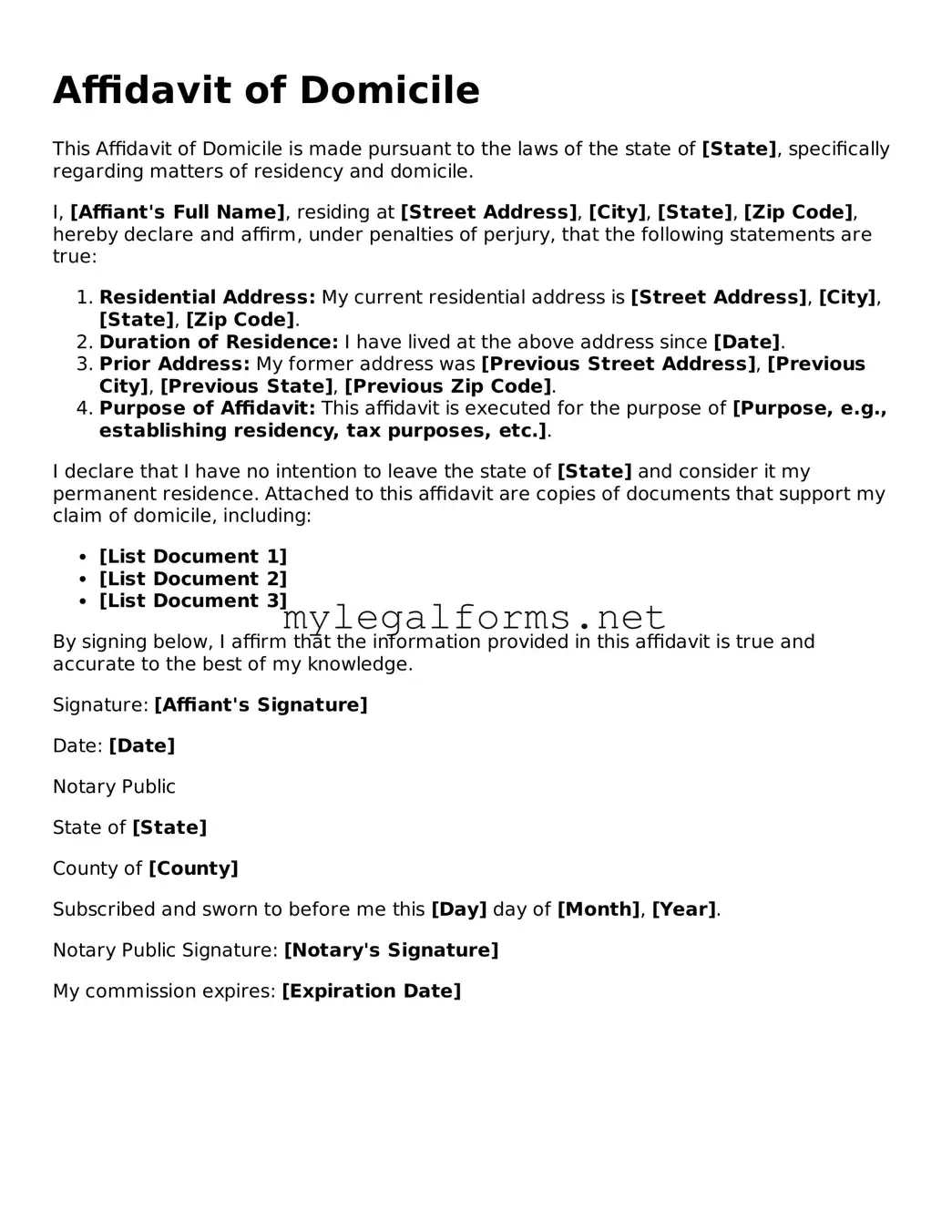Attorney-Approved Affidavit of Domicile Form
The Affidavit of Domicile is a legal document used to establish an individual's permanent residence. This form is often required in various legal and financial situations, such as settling estates or transferring assets. Understanding its purpose and proper use is essential for ensuring compliance and protecting one's interests.
Launch Affidavit of Domicile Editor

Attorney-Approved Affidavit of Domicile Form
Launch Affidavit of Domicile Editor

Launch Affidavit of Domicile Editor
or
⇓ PDF Form
Complete the form at your pace — fast
Finish your Affidavit of Domicile online and download the final version.